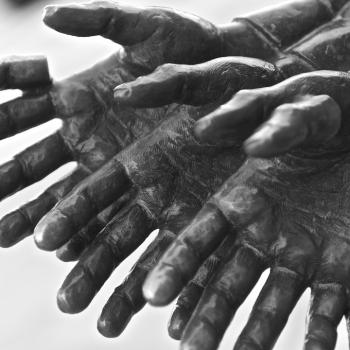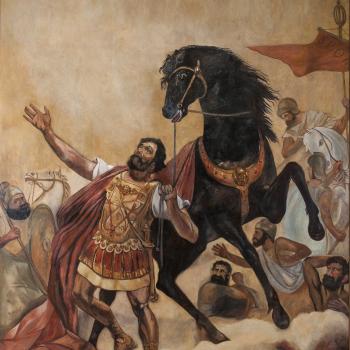When we think of Old Testament rulers, the powerful kings David and Solomon come to mind. Nearly all ancient states were monarchies of some kind. But how many of us remember that, according to the Bible, God opposed installing a monarchy to begin with? What can the birth of Israel’s monarchy teach us about how our faith should challenge human power structures today?
Time of Judges
As told in Judges, before the united monarchy Israel’s tribes existed as a loose confederation. Between roughly 1200 to 1000 BCE, they were sandwiched between Egypt (a superpower of its day) on one side and various Canaanite kingdoms on the other. A judge (שֹֽׁפְטִ֑ים) would manage disputes between tribes and act as a military commander when needed. There were also prophets to keep the political ruler in check.
The form of government described in Judges is more decentralized than a traditional monarchy. Historian Mark Shiffer describes it as a “democratic theocracy.” Deborah, probably the most famous judge today, was said to govern underneath a palm tree! In contrast, Solomon’s glorious palace clearly separated him from the people. While not a modern democracy by any means, the period was almost certainly less hierarchical than most contemporary governments. Very few states in the Bronze Age could resist one-person rule.
God’s Warning Against Monarchy
In the Biblical account, Israel’s tribes are unified into a kingdom by the demand of the ruling elite. The prophet Samuel hears the elders of Israel petitioning for a king “to govern us, like the other nations.” (1 Samuel 8:5)
God takes this to mean they have rejected His kingship over them. He warns them in stark terms:
He said, “These will be the ways of the king who will reign over you: he will take your sons and appoint them to his chariots and to be his horsemen, and to run before his chariots… He will take the best of your fields and vineyards and olive orchards and give them to his courtiers… He will take one-tenth of your grain and of your vineyards and give it to his officers and his courtiers… He will take one-tenth of your flocks, and you shall be his slaves.” – 1 Samuel 8:11, 14-15, 17
What is God saying about the consequences of having a king? He will take your sons and turn them into cannon fodder. Your daughters will be taken as laborers to keep the palace running. He’ll redistribute resources to a small group which rises above the people and becomes a privileged bureaucracy. The economy will be reorganized to support a permanent war footing. In short: it won’t go well.
But the people don’t heed God’s warning. They are fixated on military glory and being more like their neighbors. When God relents, the result is (predictably) a disaster. King Saul, who was a good man to start, is driven to paranoia and unfaithfulness by his newfound status. It seems holding power over others is inherently corrupting. David and Solomon succeed him, but most of the kings after that are not remembered fondly.
Big Picture
While filtered through the understanding of an ancient society, God’s warning against installing a powerful individual ruler holds lessons for us today. We may not live under absolute monarchies, but the problem of unaccountable rulers hoarding wealth and power – and using them toward destructive ends – is still with us.
There is a big-picture narrative in Scripture pointing away from domination/subordination relationships and toward a society where humans live as equals under God’s lordship. It runs from the time of Judges all the way to the early Christians who lived communally and subverted the social roles of their day. God is waiting for us to pick up that thread again.













